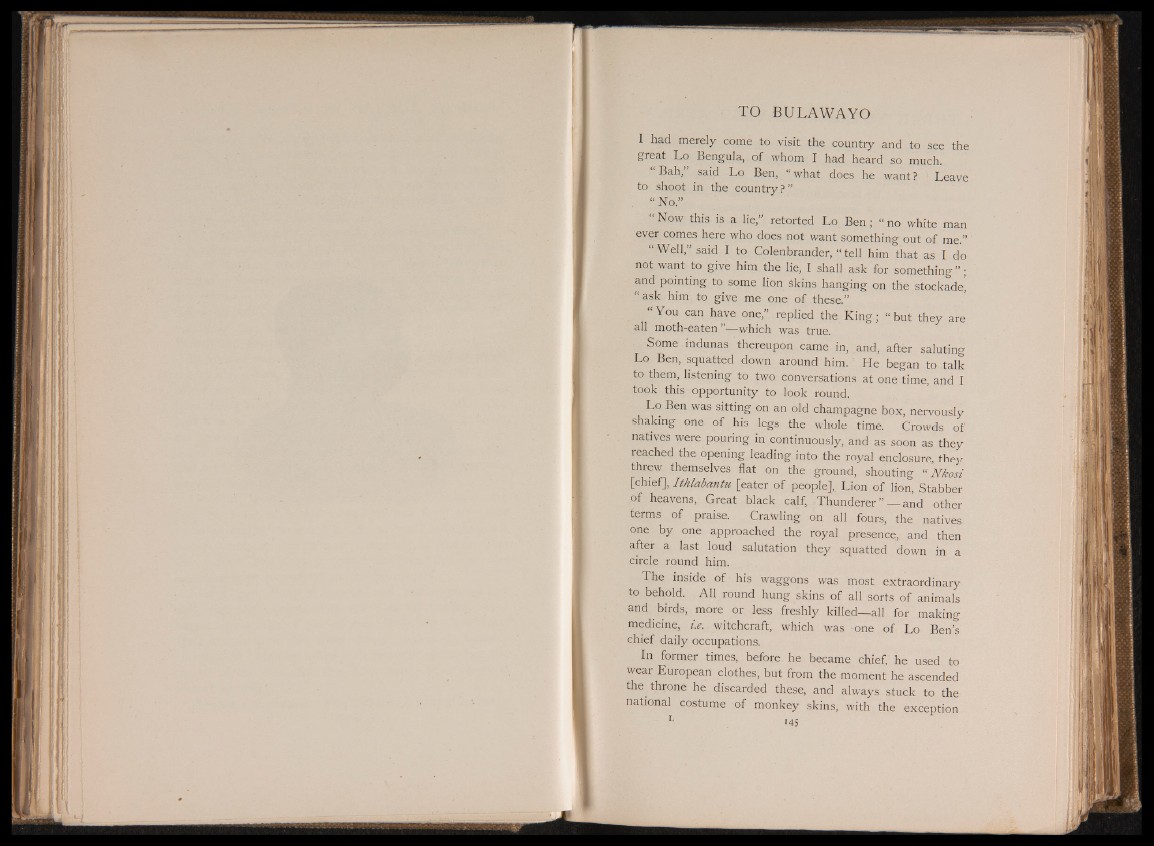
TO B U L AWA YO
I had merely come to visit the country and to see the
great Lo Bengula, of whom I had heard so much.
“ Bah,” said Lo Ben, “ what does he want? Leave
to shoot in the country?”
“ No.”
“ Now this is a lie,” retorted Lo Ben ; “ no white man
ever comes here who does not want something out of me.”
“ Well,” said I to Colenbrander, “ tell him that as I do
not want to give him the lie, I shall ask for something” ;
and pointing to some lion skins hanging on the stockade,
“ ask him to give me one of these.”
“ You can have one,” replied the King; “ but they are
all moth-eaten ”—which was true.
Some indunas thereupon came in, and, after saluting
Lo Ben, squatted down around him. He began to talk
to them, listening to two conversations at one time, and I
■took this opportunity to look round.
Lo Ben was sitting on an old champagne box, nervously
shaking one of his legs the whole time. Crowds of
natives were pouring in continuously, and as soon as they
reached the opening leading into the royal enclosure, they
threw themselves flat on the ground, shouting “ Nkosi
[chief], Ithlabantu [eater of people], Lion of lion, Stabber
of heavens, Great black calf, Thunderer ” — and other
terms of praise. Crawling on all fours, the natives
one by one approached the royal presence, and then
after a last loud salutation they squatted down in a
circle round him.
The inside of his waggons was most extraordinary
to behold. All round hung skins of all sorts of animals
and birds, more or less freshly killed—all for making
medicine, i.e. witchcraft, which was -one of Lo Ben’s
chief daily occupations.
In former times, before he became chief, he used to
wear European clothes, but from the moment he ascended
the throne he discarded these, and always stuck to the
national costume of monkey skins, with the exception
L i4S